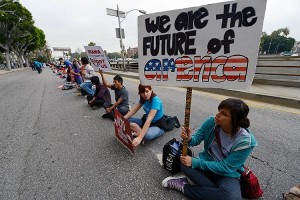
The President’s contentious executive action immigration programs could lead to $103 billion more in available wages for qualified recipients and a $230 billion increase in our country’s gross domestic product (GDP) in ten years, according to a new study from the Center for American Progress (CAP). The Deferred Action for Childhood Arrival (DACA) and Deferred Action for Parental Accountability (DAPA) programs have drawn significant criticism in recent months, but this latest study hopes to prove the arguments against the programs’ implementation – most notably, the pending lawsuit arguing their constitutional merits – wrong.
“Whatever reasons the governors and attorneys general have for filing suit, it was not because these policies are going to harm them fiscally or economically,” said Marshall Fitz, the Center’s vice president for immigration policy.
CAP calculated that the economic benefits from granting formerly undocumented immigrants temporary work permits would lead to higher wages, opportunities to find jobs matching abilities, greater economic productivity and greater tax revenues. Additionally, this foundational growth could create upwards of 28,000 jobs over the next decade.
“Rather than fighting this important—and temporary—administrative step, Congress and the states should be pushing for a lasting legislative solution that will realize the full economic potential of a 21st century immigration system,” concluded Silva Mathema, a policy analyst with CAP and author of the assessment.

Recent Comments